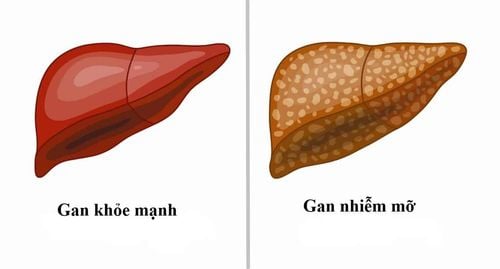This is an automatically translated article.
The article was professionally consulted by Specialist Doctor II Ho Viet Le Diem - General Internal Medicine - Department of Examination & Internal Medicine - Vinmec Central Park International General Hospital.Taking a history of liver disease during a general physical examination is an important component, especially in middle-aged or at-risk subjects. The doctor will actively visit even if the patient has absolutely no symptoms. Only when doing so, the general health examination will bring the highest meaning.
1. What is the history of liver disease during the general physical examination?
Medical history is the information surrounding the patient's reason for coming to the doctor as well as information related to the patient's medical aspects of the patient himself, his family members, and people living nearby. and environment. This is an important stage in the medical examination and treatment process at a hospital or any other medical facility. In some cases, the history information is intimately related, suggesting a quick diagnosis in complex and critical situations.
For a history of liver disease and a liver function test in particular, this is also the basis for accurate diagnosis and providing appropriate care for each patient, especially those who have a history or high risk of disease. Therefore, the doctor needs to take the initial time to take a thorough history. With the exception of emergency situations, this is never a waste but also an opportunity to put the patient at ease and build confidence in the physician's abilities.
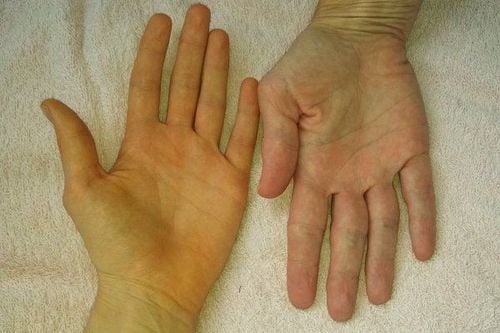
Vàng da là một trong các dấu hiệu của bệnh gan
In it, the doctor will focus on the classic signs of liver disease such as right upper quadrant pain, bloating, indigestion, jaundice, yellow eyes, ascites or other symptoms. In addition, the doctor also needs to ask about the patient's general health and lifestyle, such as previous liver disease tests, alcohol history, history of hepatitis, cholesterol levels and other areas of life. living. Finally, a family medical history should also be noted. Your doctor will want to know if one or more blood relatives have early cirrhosis and inherited liver diseases to guide diagnosis and further prevention.
2. What is the significance of taking a history of liver disease during a general physical examination?
People who have a history of liver disease, already have liver disease or are at risk of acquiring it can go to medical facilities at different stages of the disease. Specifically, when the disease is completely asymptomatic until the disease has obvious symptoms but the patient himself does not recognize it. Therefore, at the general health check-up location, the doctor needs to make an accurate assessment to ensure that the patient receives the necessary attention, care and treatment. In particular, the first approach is to take the clinical history, focusing on the patient's own and family history of liver disease, which is essential.
Only when this is done in detail and clarity can the doctor guide the next steps, including clinical examination, ordering appropriate tests and treatment. In cases where there is a suspicion of hereditary liver diseases, the doctor must also advise on screening other family members, proactively preventing possible progression to cirrhosis.
3. What information should be collected in taking a history of liver disease?
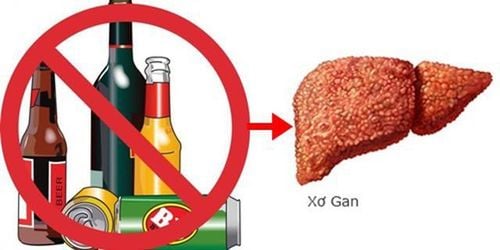
Uống rượu hàng ngày có thể dẫn đến các bệnh về gan như xơ gan.
Administrative information and contact information:
Full name, age, gender Occupation – Economic status Educational status Marital status Current address Physical status:
Non-specific symptoms Common liver disease symptoms include fatigue, loss of appetite, nausea and sometimes severe vomiting, especially in severe liver dysfunction.
Loose, fatty stools can occur when cholestatic liver disease does not provide enough bile to the intestines. Patients are at risk for deficiency of fat-soluble vitamins such as vitamins A, D, E, and K. Common clinical consequences may include osteoporosis and bleeding.
Fever can be seen in viral or alcoholic hepatitis.
Jaundice, yellow eyes often accompanied by dark urine and light-colored stools when the liver loses the function of metabolizing bilirubin.
Right upper quadrant pain due to liver damage in acute hepatitis, portal vein obstruction or liver tumor.
Personal history:
Suspicious factors in personal history for liver disease:
Hepatitis B, C: Ever had blood transfusion, intravenous drug use or unprotected sex Alcohol-related liver disease: Quantification of daily pure alcohol intake and duration of use Non-alcoholic fatty liver disease: Age over 40 years, body mass index (BMI) over 29.9 kg/m2, have metabolic syndrome, increased waist-to-hip ratio, diabetes Primary cholangitis: Female, skin yellow rash, skin pruritus, history of osteoporosis, history of autoimmune disease Iron overload cirrhosis genetics: Family history of cirrhosis Autoimmune hepatitis: History of autoimmune disease Drug-induced liver disease: Use of over-the-counter drugs, herbs or supplements Family history:
Relatives with Wilson's disease, iron overload, autoimmune liver disease or cirrhosis of unknown cause while young
4. Periodic general health check-up at Vinmec
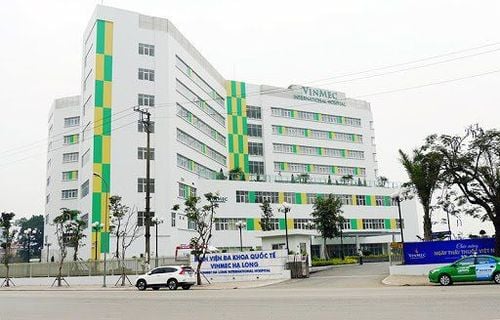
Khám sức khỏe tổng quát định kỳ tại hệ thống Bệnh viện Đa khoa Quốc tế Vinmec
As the material life and knowledge level are constantly improving, regular health check-ups are extremely necessary for everyone to have the opportunity to live longer and live healthier. By proactively going for a general health check-up even before there are any abnormal signs, through visiting, examining and performing screening tests, doctors can help identify the signs of illness. early warning signal. Especially liver diseases, when detected at an early stage, the treatment can be more effective, more successful and proactively prevent events for the patient.
With the goal of comprehensive health care in general and preservation of liver function in particular, Vinmec International General Hospital System deserves to be a reliable address for all families, especially members from the age middle age when risk factors for liver damage have gradually formed. When customers come to check, Vinmec's team of professional and experienced doctors will welcome and graciously inquire about current unpleasant symptoms, history of liver disease, history of alcohol consumption, history of hepatitis. personal and family history. If it is found that the client has high risk factors for liver disease, the doctor will order laboratory tests to evaluate and screen. The system of means, machines and testing equipment at Vinmec is modern, up to international standards and of international quality in order to bring customers the most accurate results. Accordingly, laboratory testing for underlying liver disease may include:
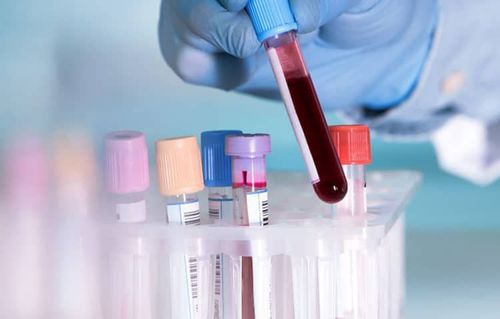
Xét nghiệm máu để kiểm tra mức độ men gan trong máu
Blood test - check the level of liver enzymes in the blood. If levels are high, this will be evidence of liver damage. At the same time, blood tests also help evaluate liver function through blood clotting function, blood protein, bilirubin. In addition, blood tests also help find the cause of cirrhosis such as finding viral hepatitis antigens, quantifying copper and iron accumulation in the blood in metabolic liver diseases. Liver ultrasound – With ultrasound waves, the shape and structure of the liver is shown, helping doctors find abnormalities as early as possible, even when there are no symptoms. The most sensitive feature on ultrasound is the presence of stones in the bile ducts in the liver parenchyma or stones in the gallbladder. Liver Biopsy - For liver lesions that cannot be explained by conventional tests or for prognostic diagnoses, a liver biopsy for microscopic observation of hepatocytes is indicated. In addition, Vinmec International Hospital System has deployed many other specialized tests in liver examination packages, suitable for each subject. This is an expression of our commitment to comprehensive health care, giving everyone the opportunity to have a healthy and long-lasting liver.
The danger of liver cancer has shown the importance of screening and early detection of the disease. Therefore, Vinmec International General Hospital has provided customers with a package of screening and early detection of liver cancer to screen for liver cancer for people at high risk of diseases such as: alcoholics, cirrhosis, family history of liver cancer, cirrhosis, hepatitis B virus infection, chronic hepatitis C,...
Service selection Package for screening and early detection of liver cancer, patients will be examined, consulted and performed tests, diagnostic imaging to evaluate liver function, liver diseases and liver cancer screening. With a system of modern machinery and a team of highly qualified and experienced doctors, Vinmec is committed to the best protection for the health of patients.
Please dial HOTLINE for more information or register for an appointment HERE. Download MyVinmec app to make appointments faster and to manage your bookings easily.
MORE
Complications and prognosis of treatment of nonalcoholic fatty liver Nonalcoholic fatty liver: Diagnosis and treatment of nonalcoholic fatty liver: Progression and symptoms





